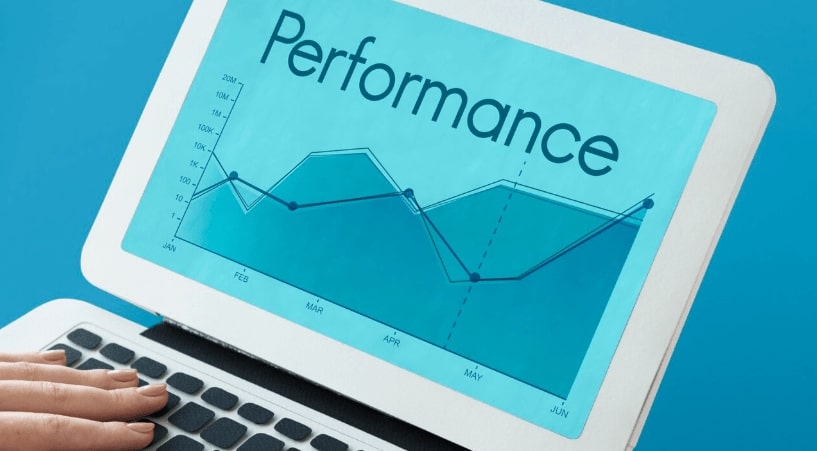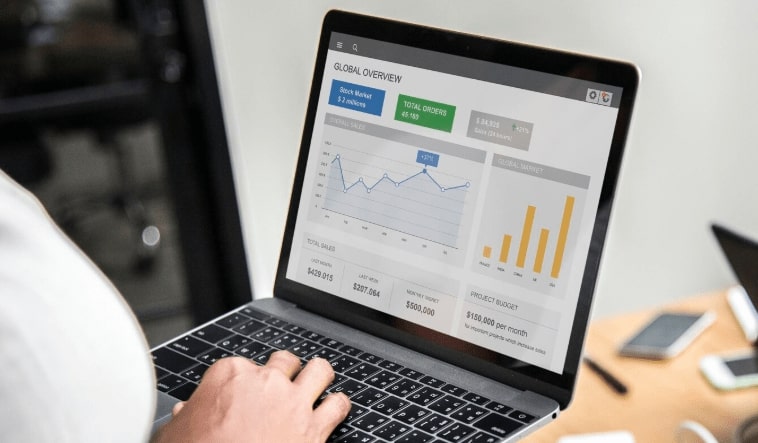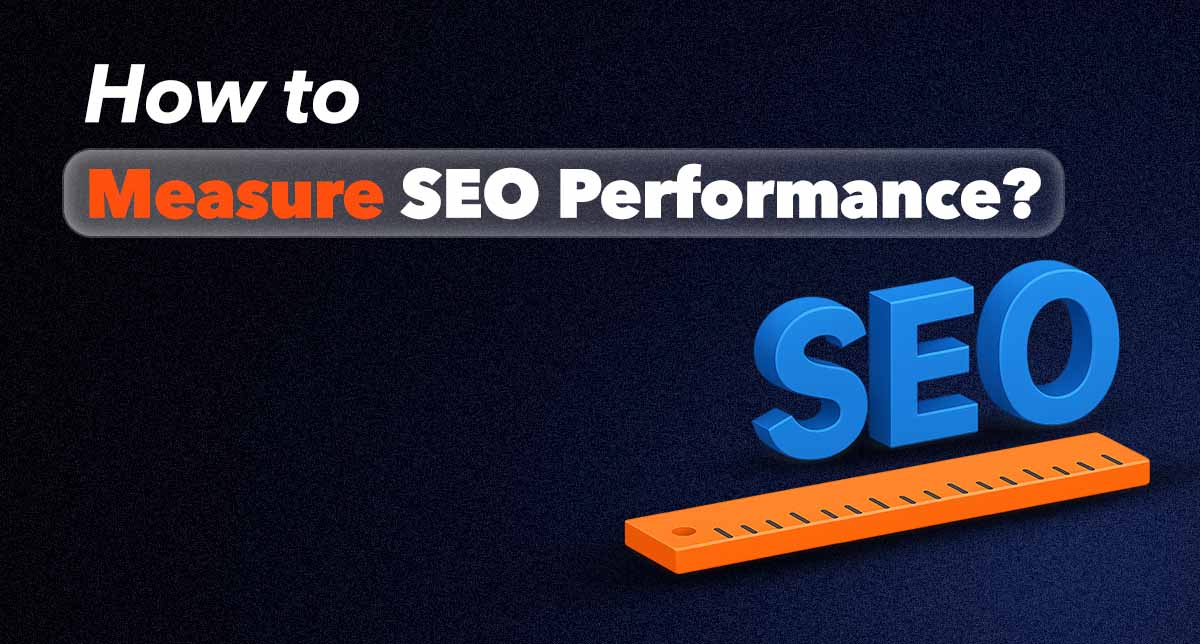SEO experts believe it typically takes up to 8 weeks to see the results of your SEO efforts; however, this timeframe is not guaranteed. SEO success depends on many different factors. Factors such as organic conversions, organic traffic, keyword rankings, domain authority, and click-through rate all matter. These are key indicators that show how well your website performs in search engine results. In this blog from hdm Agency, we’ll explain how to measure SEO Performance and understand if your strategy is working or not.


Why Measuring SEO Performance Matters?
If you want real growth, you need real data. Measuring SEO helps you see what’s working and what’s not. It also helps you make smarter decisions to grow faster. It helps you see progress: You can track whether your traffic is growing or not. This indicates whether your SEO strategy is effective. So, here are some reasons that show why measuring SEO Performance matters:- You can fix problems early: If your traffic drops, SEO metrics help you find the reason. You can adjust your content or strategy before it’s too late.
- It guides better decisions: With the right numbers, you know where to focus. You don’t waste time or money on the wrong things.
- You understand what users want: SEO data shows which pages get clicks. This tells you what your visitors are interested in.
- You prove ROI to others: Business owners and managers need results. SEO metrics help you show that SEO brings value and returns.
Which seo metrics are important to track?
Just having a website or an online store is not enough. You need to check if people are visiting, clicking, and converting. That’s why tracking the right SEO metrics is important. Understanding which SEO metrics are important to track can help you evaluate your website’s effectiveness and refine your strategy.- Keyword Rankings: This shows where your website ranks for important search terms. For example, if you run a Dubai-based fashion store and rank #3 for “abaya online UAE,” that’s a strong position. Higher rankings usually mean more visibility and clicks.
- Organic Traffic: This indicates the number of visitors to your website from search engines like Google. For instance, if your organic traffic grows from 1,000 to 3,000 visitors in a month, your SEO is doing well. It indicates that your content is being discovered more frequently.
- Conversion Rate: This is the percentage of visitors who take action, like filling a form, making a purchase, or signing up. Let’s say 100 people visit your site, and 5 buy something; that’s a 5% conversion rate. If SEO brings traffic but no sales, you need to review your strategy.
- Click-Through Rate (CTR): CTR shows how many people click on your page after seeing it in search results. If 100 people see your listing and 10 click it, your CTR is 10%. A low CTR may indicate that your title or meta description needs improvement
- Bounce Rate: Bounce rate shows how many visitors leave your site without clicking anything or visiting another page. A high bounce rate may mean your content is not helpful or your site is hard to use. For example, if users in the UAE click on your “shoes in Dubai” page but leave in seconds, maybe your design or content needs improvement. Lowering bounce rate means your content is more engaging.
- Domain Authority (DA): Domain Authority is a score (from 1 to 100) that shows how strong and trustworthy your site is compared to others. The higher your DA, the better your chance of ranking on Google. For instance, if your competitor’s site has a DA of 45 and yours is 20, they’ll likely rank higher. Getting more backlinks from quality UAE-based websites can help you increase your DA over time.
- Pages Per Session: This metric shows how many pages a user visits in one session on your website. If people visit many pages, it means they’re interested in your content. For example, if someone lands on your homepage, then visits the blog, then views the “contact us” page, that’s a strong session. More page views often lead to better engagement and higher chances of conversion.

How would you monitor the effectiveness of seo over Time?
SEO is not a quick fix; it’s a long-term strategy that requires consistency and insight. To see real results, you need to monitor your performance regularly and track meaningful progress over time. While daily changes may seem important, true growth comes from improvements measured over weeks and months. That’s why consistent analysis is key. With the help of reliable tools and expert SEO services, you can gain valuable insights into what’s working and what needs adjustment. Want to know how to measure SEO performance the right way? Follow these 4 essential steps to track success and stay ahead of the competition.Step 1. Define Clear and Measurable Goals
Start by setting SEO goals that make sense for your business. These goals must be specific, like “increase organic traffic by 25% in 3 months” or “rank in the top 5 for 10 keywords.” Avoid general goals like “get more traffic.” Clear targets help you know what to track and when you’ve achieved success. Without defined goals, you won’t know if your SEO is working.Step 2. Track Performance with Trusted Tools
Use tools like Google Analytics and Google Search Console to gather your SEO data. These platforms show how many people visit your site, which pages they visit, and how they found you. You can also use platforms like SEMrush or Ahrefs for more detailed keyword tracking. Reliable tools give you accurate insights, so you don’t guess; you make decisions based on real numbers.Step 3. Create and Review Monthly SEO Reports
Build a monthly SEO report with all your key metrics. Include data such as traffic, keyword rankings, conversions, bounce rate, and CTR. Compare this report with previous months to find trends. For example, if your ranking for “best perfume in Dubai” moves from #8 to #3, that’s strong progress. These reports help you find what’s working and what needs improvement.Step 4. Adjust Strategy Based on Results
In the final step, you’ll understand how you would monitor the effectiveness of seo. Once you have the data, don’t just look at it; act on it. If your rankings are improving but your conversions are low, maybe your content doesn’t match user intent. Or if traffic is up but the bounce rate is high, your page speed or mobile layout might need work. Use what you learn to update your SEO plan regularly. SEO isn’t “set it and forget it”; it’s an ongoing process of learning and adjusting.Why Do Most Businesses Struggle to Track SEO Properly?
Tracking SEO sounds simple, but in reality, it’s not easy. Many businesses don’t know what to measure or how to read the data. Without experience, SEO reports can look confusing or even misleading. Some focus only on rankings and forget about other key metrics. Others don’t track anything at all. That’s why understanding SEO needs time, tools, and know-how. A lack of proper tracking can also limit your overall Benefits of Digital Marketing and other items. If you can’t measure what’s working, you can’t grow.1. Focusing Only on Rankings
Many people think SEO is just about ranking high on Google. But rankings alone don’t show the full picture. You might rank #1 for a keyword but get zero conversions. Without tracking other metrics like CTR or bounce rate, you won’t know if your SEO is truly helping your business.2. Not Setting Clear Goals
Without clear goals, you won’t know what success looks like. This is a major reason why many businesses struggle. Setting goals helps you focus on what matters and measure real results. Here are a few examples of good SEO goals:- Improve average CTR to above 4%
- Reach the top 5 ranking for 10 key terms
- Increase organic traffic by 30% in 6 months
- Lower bounce rate on product pages by 15%
3. Ignoring User Behavior
SEO is not only about bringing users to your site; it’s also about what they do after they arrive. Some businesses focus too much on numbers and forget about experience. If users leave quickly, don’t convert, or can’t find what they want, your SEO needs adjustment. User behavior helps you shape better content and better pages.4. Lack of Proper Tools and Tracking Setup
If your tools are not set up correctly, your data will be wrong or incomplete. Some businesses don’t use Google Analytics or Search Console at all. Others install them but don’t configure key features like goals, events, or filters. Without accurate tracking, you’re flying blind. Here’s what a basic setup should include:- Google Analytics with goal tracking enabled
- Google Search Console is connected and verified
- Keyword tracking tools like Ahrefs or SEMrush
- Heatmaps or session recording tools for user insights
5. Overlooking Local SEO Metrics
Many UAE-based businesses rely heavily on local customers. But they often forget to track local SEO metrics like map views, local rankings, and Google Business Profile interactions. If your store is in Abu Dhabi, ranking well globally doesn’t help much. You need to track how your business appears in local search results and how people interact with it.6. Analyzing SEO Too Early
SEO takes time. Some expect results in just a few days or weeks. When they don’t see quick wins, they assume it’s not working. But most SEO changes show results after several weeks or even months. Checking your numbers too soon can lead to wrong conclusions and bad decisions. Patience and consistency are key.
What an SEO Agency Tracks That You Might Miss?
A good SEO agency sees what most businesses overlook. Without experience, you may miss key metrics or fail to connect data with strategy. Agencies use advanced tools and deeper analysis to track trends, not just numbers. They spot technical issues, content gaps, or user experience problems that others don’t notice. That’s why many ask: Is SEO Really Worth It? And the answer depends on how well it's done and how well it's tracked. In the table below, we compare In-House vs. Agency SEO Tracking:| Tracking Areas | In-House SEO | SEO Agency (Professional) |
| Basic Metrics (traffic, CTR) | Often tracked | Tracked in detail with trends |
| Keyword Ranking | Selected keywords only | Broader keyword analysis |
| Conversion Tracking | Sometimes missed | Always included and monitored |
| Technical SEO Audit | Rarely done | Regular and in-depth |
| Backlink Monitoring | Often ignored | Tracked with quality score |
| User Behavior & Heatmaps | Not tracked | Included in full funnel analysis |
| Local SEO Data | Missed for regional targeting | Tracked for map/search/local intent |
| Competitor Benchmarking | Rare or manual | Ongoing and automated |
| SEO Strategy Alignment | No clear direction | Strategic roadmap with KPIs |
| Reporting & Actionable Insights | Raw data, no insights | Custom reports + action plan |
From Metrics to Strategy: Turning SEO Data into Action
Collecting SEO data is just the first step. What matters is how you use that data to grow. At HDM Agency, we go beyond tracking numbers. We analyze the full picture and build a strategy based on what the data says. From audits to action plans, we turn insights into results, tailored to your goals and market. What We Do at HDM Agency:- Perform technical SEO audits regularly
- Monitor competitors and market trends
- Optimize content with updated search data
- Analyze user behavior and funnel drop-offs
- Develop and execute long-term SEO strategies
- Create clear monthly SEO performance reports
- Track keyword rankings and intent-based searches
Ready to Measure What Matters in SEO?
Measuring SEO performance helps you see what’s working and fix what’s not. From keyword rankings to bounce rate, every number tells a story. But to get the full picture, you need more than just tools; you need a plan. That’s why smart businesses trust expert teams to guide the way. If you’re in the UAE and ready to grow, we’re here to help. Contact our HDM office in the Emirates to get started. You can reach us at +971 56 26 01 368 or simply fill out our consultation request form. Let’s measure, improve, and grow together! FAQ- Do I need to check SEO performance daily? No, SEO changes slowly. Weekly or monthly reviews are better for tracking real trends.
- Can SEO tools give me exact results? They give strong estimates, but no tool is 100% exact. Use multiple tools for the best accuracy.
- How do I know if my keywords are right? If they match your audience's search intent and bring conversions, they’re working well.
- What’s the best way to track local SEO performance? Use Google Business Profile, local keyword tracking, and map pack visibility tools.
- Is SEO performance only about Google? Google is the main player, but also check Bing, YouTube, and other relevant search platforms based on your audience.




